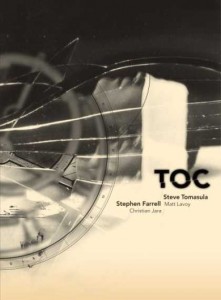I thoroughly enjoyed N. Katherine Hayles’ seminar earlier this afternoon at London Southbank University, as part of a double bill with Lev Manovich. Hayles’ talk was rich, and certainly full of more insights than I can recount here. But a couple of basic and I think very interesting ideas were at the core of the seminar. The first idea was what Hayles called the uncontroversial or well-established notion of technogenesis: that the human species is defined by its co-evolution with various tools and technologies; or, that the inside – subjectivity – is always contaminated by the outside – technics. The second basic idea was that of distributed cognition: that cognition involves more than the neocortex, but also the body and its extended material and technological environment.
From these two basic ideas, Hayles’ paper centred around a useful distinction between what she called ‘foreground’ and ‘background’ of distributed cognition. The former indicates a sort of deep attention, involved for example in the process of engaging a traditional analogue book. The latter indicates the multiple-stream, ‘hyperattention’ involved in, for example, interacting with and experiencing digital media. The point Hayles was making is that in recent decades our brains have increasingly been rewired around a hyper-attentive framework. That is, not just our brains or thought processes per se, but in the way we are re-adapting and arranging our distributed cognitive environments.
 Hayles used the example of Steve Tomasula’s digital novel TOC: A New-Media Novel to illustrated the movement towards hyperattention. If I am completely honest, I didn’t think this example necessarily fulfilled the promise of Hayles’ excellent framing. But in the main, this had more to do with technical difficulties (poor sound) and time constraints (just an hour). Things did get potentially quite interesting right at the end when, during questions, an all-too-short discussion took place around some of the political and ethical issues that arise with digital media and the idea of rising hyperattention (interestingly enough, one example given of this was the apparent technogenetic gulf between students and their professors).
Hayles used the example of Steve Tomasula’s digital novel TOC: A New-Media Novel to illustrated the movement towards hyperattention. If I am completely honest, I didn’t think this example necessarily fulfilled the promise of Hayles’ excellent framing. But in the main, this had more to do with technical difficulties (poor sound) and time constraints (just an hour). Things did get potentially quite interesting right at the end when, during questions, an all-too-short discussion took place around some of the political and ethical issues that arise with digital media and the idea of rising hyperattention (interestingly enough, one example given of this was the apparent technogenetic gulf between students and their professors).
This event was a double bill, of course – follow the link for a short blurb around Lev Manovich’s talk.
4 responses